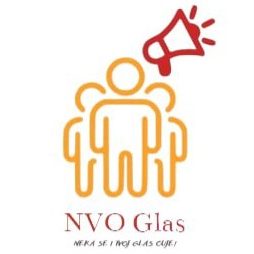NVO GLAS, u okviru regionalnog projekta “Youth Engagement for Europeanization of the Balkans”, objavljuje četvrti intervju u seriji razgovora sa mladima i omladinskim liderima evropskih vrijednosti. Ovim projektom nastoji se osnažiti uloga mladih u evropskim integracijama i reformskim procesima, podstičući njihovo aktivno učešće u oblikovanju budućnosti Crne Gore i regiona.
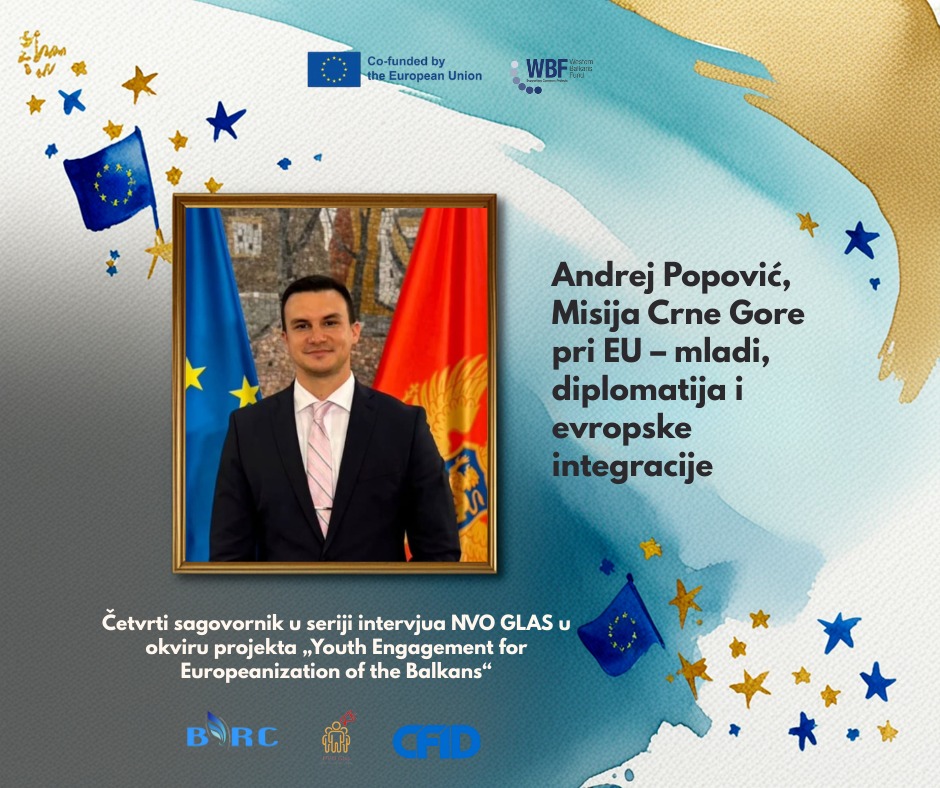
Naš sagovornik ovoga puta je Andrej Popović, treći sekretar Misije Crne Gore pri Evropskoj uniji. Stručnjak za političke nauke i karijerni diplomata, Popović je nosilac trostruke master diplome iz evropskih studija Univerziteta u Opoleu, Majncu i Dijonu. Njegovo profesionalno iskustvo i akademski put daju mu posebnu perspektivu o tome kako mladi mogu doprinositi evropskim procesima, kako u Crnoj Gori, tako i na međunarodnom nivou.
Posebnu zahvalnost upućujemo Misiji Crne Gore pri EU na podršci i omogućavanju realizacije ovog razgovora, koji je vodila Milica Dedić, izvršna direktorica NVO GLAS.
U razgovoru sa Andrejem Popovićem otvaramo teme koje se tiču položaja mladih u procesu evropskih integracija, iskustava rada u Briselu i njihovog značaja za sagledavanje izazova i prilika pred mladima u Crnoj Gori. Govorimo i o razvoju političke i diplomatske komunikacije kao ključne vještine, o programima i inicijativama EU koji otvaraju nove šanse za obrazovanje i zapošljavanje, o spremnosti mladih da aktivno doprinesu pregovorima, ali i o zabludama koje je potrebno razbiti kroz javne kampanje. Popović u intervjuu daje i savjete mladima koji žele karijeru u institucijama EU ili diplomatiji, uz osvrt na važnost uključivanja dijaspore mladih stručnjaka u razvoj zajednice kod kuće.
Intervju sa Andrejom Popovićem slijedi u nastavku.
NOVO GLAS: Kao treći sekretar Misije Crne Gore pri EU, kako iz prve ruke vidite trenutni položaj mladih u procesu evropskih integracija?
Andrej: Mladi predstavljaju okosnicu razvoja svakog društva, koje je utemeljeno na vrijednostima demokratije i vladavine prava. Iako su mladi u Crnoj Gori relativno dobro informisani o procesu pristupanja naše države Evropskoj uniji, smatram da je od ključnog značaja da svi društveni akteri dodatno intenziviraju strateško komuniciranje prednosti koje donosi članstvo u EU. Naročito je važno podizanje svijesti kod mladih o tome da proces pristupanja Evropskoj uniji podrazumijeva unaprjeđenje njihovog položaja u pogledu zapošljavanja, obrazovanja, zdravlja i socijalne inkluzije.
Tokom obavljanja poslova III sekretara, sarađujem sa brojnim mladim ljudima koji su raspoređeni u stalnim predstavništvima država članica pri EU, misijama država kandidata i institucijama EU. Karika koja nas povezuje je posvećenost idealima Evropske unije i uvjerenje da je budućnost Crne Gore u porodici razvijenih evropskih zemalja. Tu blisku budućnost će mladi iz Crne Gore moći da provode uživajući u slobodi kretanja koja će nam se otvoriti. Ipak, važno je napomenuti da s ulaskom u EU, mlade treba motivisati na život u svojoj zemlji kao prosperitetnoj budućoj najmlađoj članici Unije.
NVO GLAS: Kako iskustvo rada u Briselu utiče na Vaše viđenje izazova i mogućnosti za mlade u Crnoj Gori?
Andrej: Ulazak Crne Gore u Evropsku uniju bi mladim ljudima nesumnjivo proširio vidike i otvorio nove šanse za profesionalno napredovanje. Buduće članstvo u EU bi mladima omogućilo pristup Jedinstvenom tržištu EU, što bi značilo veću dostupnost poslova širom EU, osnažilo njihovo učešće u procesu donošenja odluka, te unaprijedilo mobilnost.
Uzimajući u obzir sve bliže članstvo naše zemlje u EU, za mlade se kao izazov nameće to da sloboda kretanja ne bi trebalo da se pretvori u ono što se nerijetko dešava kod novih država članica a to je da trajno napuste svoju matičnu zemlju. Pored toga, fenomen „odliva mozgova“ zahtijeva temeljnu i sveobuhvatnu analizu nadležnih državnih institucija, uz davanje seta smjernica i preporuka kako bi daroviti i blistavi mladi intelektualci ostali u državi. Crna Gora, nema luksuz da se odrekne tako važnog razvojnog resursa kao što je ljudski kapital.
NVO GLAS: Na koji način EU institucije podstiču uključivanje mladih u kreiranje politika, i koliko Crna Gora može preuzeti takve prakse?
Andrej: Da, Evropska unija pridaje veliki značaj aktivnom učešću mladih u procesu donošenja odluka govori EU strategija za mlade 2019-2027. Podsjetio bih da je tom Strategijom uspostavljen okvir za sprovođenje različitih omladinskih politika na nivou EU u vidu stvaranja jednakih mogućnosti za obrazovanje i učešća na tržištu rada. Neizostavni dio Strategije predstavlja EU dijalog sa mladima, mehanizam koji je uspostavljen i u Crnoj Gori prije nekoliko godina i koji bi, po mom mišljenju, trebalo revitalizovati. Osim toga, nedavno je inicirano formiranje Savjetodavnog odbora za mlade Predsjednice Evropske komisije. U rad pomenutog Odbora mogu biti uključeni predstavnici omladinskih organizacija iz zemalja kandidata i potencijalnih kandidata za članstvo u EU, kako bi se čuo glas mladih i iz tih zemalja. Mreža za mlade Crne Gore će djelovati kao posmatrač u Savjetodavnom odboru za mlade.
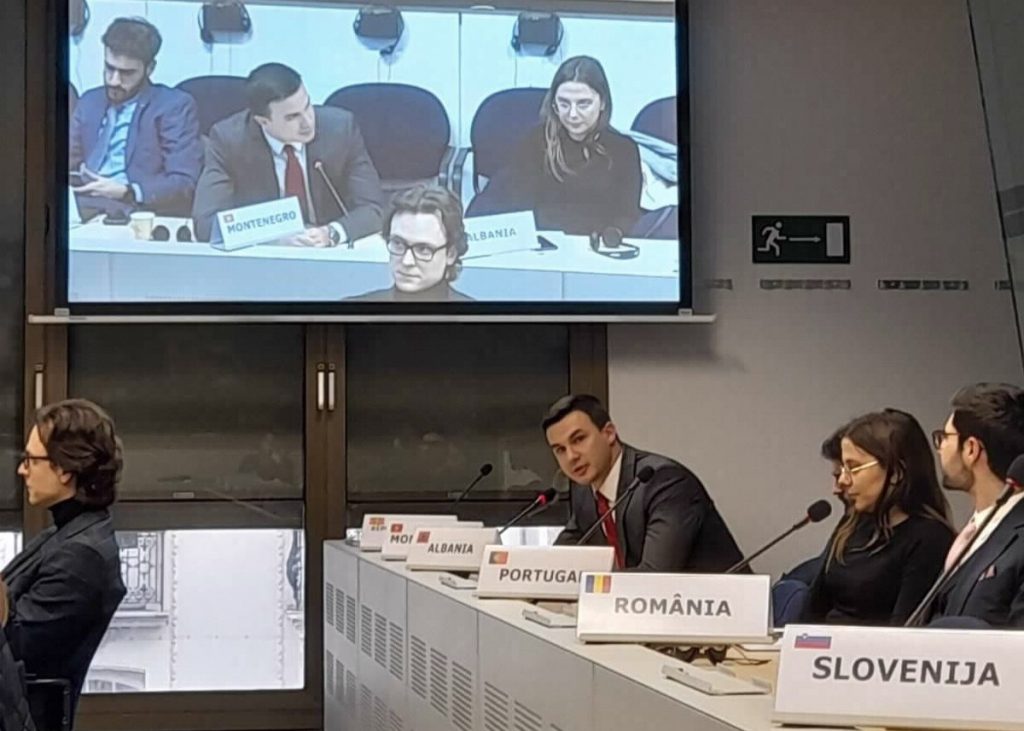
NVO GLAS: Kako mladi u Crnoj Gori mogu bolje razumjeti i pratiti pregovarački proces, posebno kroz dostupne izvore informacija iz Brisela?
Andrej: Pored sredstava javnog informisanja, mladi putem sajta Vlade i Ministarstva evropskih poslova mogu saznati više o najnovijim aktivnostima koje proizilaze iz pregovaračkog procesa Crne Gore. Takođe, tu je i nalog Misije Crne Gore pri EU na društvenoj mreži X, koji posebno prati i aktuelnosti u vezi sa mladima, te sajt EU4ME. Dodatno, sve relevantne informacije o pregovaračkom procesu naše zemlje, kao i ostalih država kandidata za članstvo u EU su dostupne i na zvaničnim sajtovima institucija EU.
NVO GLAS: Koliko je važno da mladi razviju vještine evropske političke i diplomatske komunikacije?
Andrej: Konstantno unaprjeđivanje komunikacionih vještina kod mladih je od ključne važnosti, posebno u diplomatiji. Među osnovnim ciljevima je efikasno zastupanje nacionalnih interesa i jasno komuniciranje potreba Crne Gore kao kandidata kako prema državama članicama, tako i prema institucijama EU čije pozicije i stavovi povremeno mogu biti protivrječni. S druge strane, neophodno je određene prioritete, a ponekad i kritike od strane evropskih partnera, prezentovati centrali i iznaći načine da ih operacionalizuje.
Dodao bih da je poželjno razvijati i meke vještine koje, između ostalog, podrazumijevaju aktivno slušanje, kritičko razmišljanje i timski rad. Znanje više stranih jezika je, svakako, velika prednost.
NVO GLAS: Možete li navesti konkretne primjere programa ili inicijativa EU koji su posebno korisni za zapošljavanje i obrazovanje mladih?
Andrej: Što se tiče konkretnih inicijativa EU, podsjetio bih da Evropska komisija dva puta godišnje organizuje program pod nazivom Blue Book Traineeship koji omogućava petomjesečno plaćeno stažiranje diplomcima koji dolaze iz država članica EU, ali i država kandidata. Dakle, ovaj program pruža sjajnu priliku i mladima iz Crne Gore da, radeći u multikulturalnom i stimulativnom okruženju, razvijaju vještine i steknu nova znanja i iskustva u pogledu razumijevanja evropskih politika i funkcionisanja Evropske unije. Istakao bih i Erasmus+ program, kao jedan od najvećih programa EU za oblast obrazovanja, koji doprinosi snaženju interkuluralnog dijaloga među mladima.
NVO GLAS: Koliko su, po Vašem mišljenju, mladi u Crnoj Gori spremni da aktivno doprinesu ispunjavanju mjerila iz pregovaračkih poglavlja?
Andrej: Poznato je da je Crna Gora ušla u završnu fazu pregovaračkog procesa, a ispunjavanje završnih mjerila je u nadležnosti resornih ministarstava. Ove i naredne godine, našoj zemlji predstoji zatvaranje preostalih pregovaračkih poglavlja, što je jedan od finalnih koraka za članstvo u EU koje će, kako sam ranije naveo, mladima nesumnjivo donijeti brojne pogodnosti.
NVO GLAS: Kako mislite da iskustva iz Vašeg tronacionalnog master programa u evropskim studijama mogu poslužiti kao model obrazovanja za mlade koji žele da se bave evropskim poslovima?
Andrej: Zadovoljstvo mi je što sam, sa još nekoliko mladih i perspektivnih ljudi iz Crne Gore, alumnista trinacionalnog dvogodišnjeg Europa Master programa. Studirajući u tri zemlje (Poljska, Njemačka i Francuska) obogatio sam svoja znanja, stekao dragocjeno iskustvo i upoznao tri različite kulture. Iskoristio bih ovu priliku da pozovem i ohrabrim studente političkih nauka da apliciraju za stipendiju i prodube znanja o procesu evropske integracije, evropskim politikama i institucijama EU.
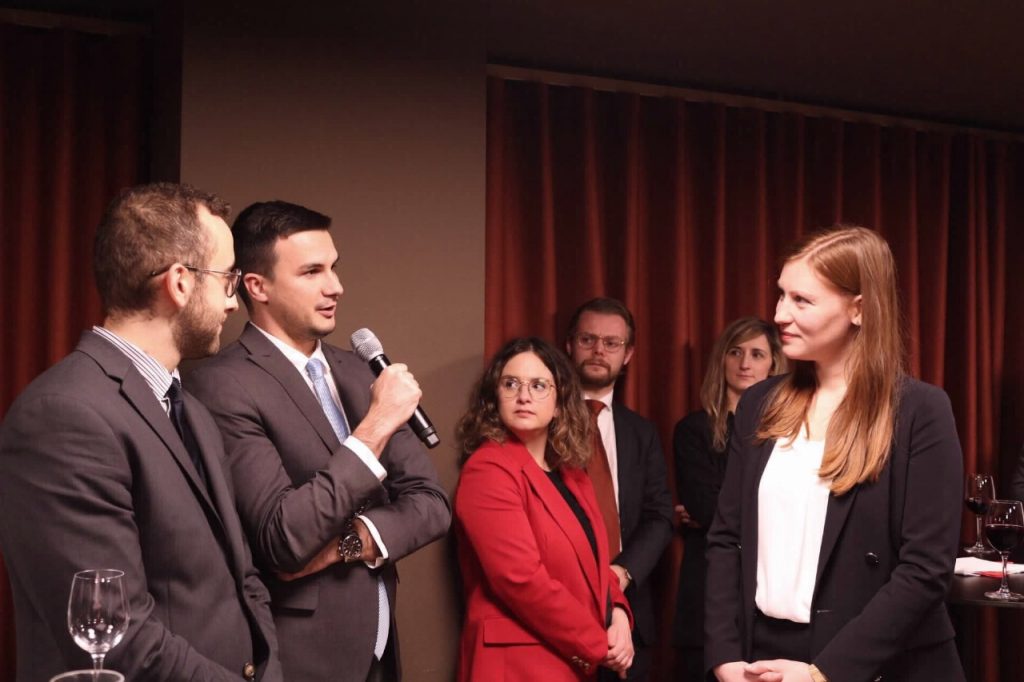
NVO GLAS: Koje su najveće zablude mladih o EU i pregovorima koje bi trebalo razbiti kroz javne kampanje i obrazovne aktivnosti?
Andrej: Pokretanje frekventnijih javnih kampanja u saradnji sa Delegacijom EU u Crnoj Gori o opipljivim stvarima koje mladi dobijaju članstvom naše države u Uniji bilo bi više nego poželjno. Takođe, predstavljanje pozitivne slike o EU u kojoj omladinske organizacije aktivno participiraju u društveno-političkim procesima može dodatno animirati mlade u našoj zemlji i time neutralizovati njihovu povremenu apatiju.
NVO GLAS: Koji bi bio Vaš savjet mladima koji žele da započnu karijeru u institucijama EU ili diplomatskim predstavništvima?
Andrej: Osim formalnog obrazovanja, nezaobilazno je i neformalno obrazovanje koje podrazumijeva pohađanje brojnih seminara i radionica i učešće na forumima organizovanim od strane državnih institucija i civilnog sektora. Podsjećam da Ministarstvo vanjskih poslova dva puta godišnje, u martu i oktobru, organizuje polaganje ispita za mlade koji žele da započnu diplomatsku karijeru i zastupaju interese Crne Gore u međunarodnim odnosima. Jednom kada polože ispit i postanu dio Ministarstva, ukoliko se svojim radom istaknu i požele karijeru u EU diplomatiji, ta će vrata najbolje otvoriti prijavom za učešće u Diplomatskom programu EU za region proširenja. Navedeni Program se odvija paralelno sa Evropskom diplomatskom akademijom na Koledžu Evrope u Brižu, čiji sam bio polaznik, uključujući i dvije mlade diplomatkinje iz Crne Gore. Naglasio bih i da su, nakon višegodišnje pauze, Ministarstvo vanjskih poslova i Misija Crne Gore pri EU ponovo pokrenule mogućnost stažiranja u Misiji za naše mlade koji privode kraju studije u regiji Beneluksa.
NVO GLAS: Kako uključiti dijasporu mladih stručnjaka iz Crne Gore u EU proces i razvoj zajednice kod kuće?
Andrej: Smatram da je dijeljenje iskustava od strane mladih stručnjaka iz dijaspore od velikog značaja za zajednicu. U tom smislu, vjerujem da bi organizovanje seminara i foruma koji bi okupljali predstavnike državnih institucija, civilnog društva, uključujući mlade stručnjake iz inostranstva, podstaklo razmjenu ideja i stavova o evropskoj integraciji Crne Gore, kao našem glavnom vanjskopolitičkom prioritetu.
Razgovor sa Andrejom Popovićem pokazuje da mladi ljudi u Crnoj Gori imaju potencijal i priliku da budu nosioci evropskih vrijednosti i da aktivno učestvuju u pregovaračkom procesu. Njegova diplomatska perspektiva podsjeća da evropske integracije nisu samo politički cilj države, već i prilika za obrazovanje, zapošljavanje i društveni napredak mladih. Upravo zbog toga, osnaživanje mladih, njihovo informisanje i uključivanje u javne procese ostaje ključno za uspjeh evropskog puta Crne Gore.
Regionalni projekat „Youth Engagement for Europeanization of the Balkans“ realizuje se u partnerstvu sa organizacijom BIRC iz Sjeverne Makedonije (nosilac projekta), CFID sa Kosova i NVO GLAS iz Crne Gore, uz podršku Western Balkans Fund-a i kofinansiranje Evropske unije.
Andrej Popović, Mission of Montenegro to the EU – youth, diplomacy and European integration
NGO GLAS, within the regional project “Youth Engagement for Europeanization of the Balkans”, publishes the fourth interview in the series of conversations with young people and youth leaders of European values. Through this project, the aim is to strengthen the role of youth in European integration and reform processes, encouraging their active participation in shaping the future of Montenegro and the region.
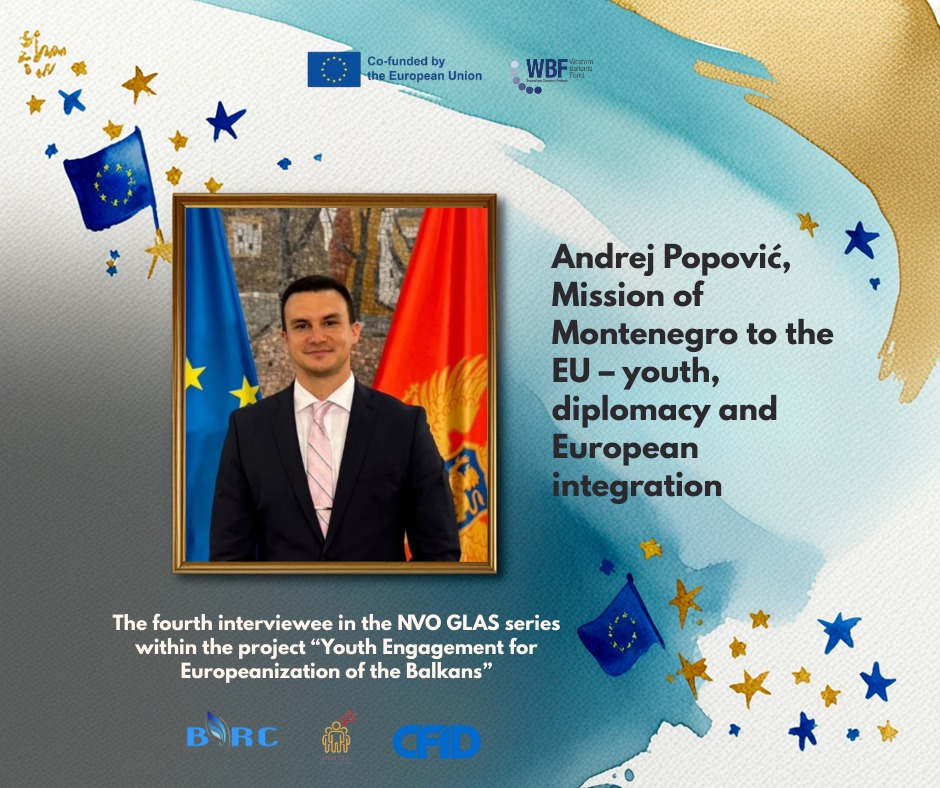
Our interlocutor this time is Andrej Popović, Third Secretary of the Mission of Montenegro to the European Union. An expert in political science and a career diplomat, Popović holds a triple master’s degree in European studies from the Universities of Opole, Mainz and Dijon. His professional experience and academic path provide him with a special perspective on how young people can contribute to European processes, both in Montenegro and at the international level.
Special thanks go to the Mission of Montenegro to the EU for their support and for enabling the realization of this conversation, which was conducted by Milica Dedić, Executive Director of NGO GLAS.
In the conversation with Andrej Popović, we open topics related to the position of young people in the process of European integration, the experience of working in Brussels and its importance for understanding the challenges and opportunities facing youth in Montenegro. We also speak about the development of political and diplomatic communication as a key skill, about EU programs and initiatives that create new opportunities for education and employment, about the readiness of young people to actively contribute to the negotiations, as well as about misconceptions that need to be broken through public campaigns. In the interview, Popović also gives advice to young people who wish to build a career in EU institutions or diplomacy, while highlighting the importance of involving the diaspora of young professionals in the development of the community at home.
The interview with Andrej Popović follows below.
NGO GLAS: As Third Secretary of the Mission of Montenegro to the EU, how do you see firsthand the current position of youth in the process of European integration?
Andrej: Youth represent the backbone of the development of every society, which is founded on the values of democracy and the rule of law. Although young people in Montenegro are relatively well informed about the process of our country’s accession to the European Union, I consider that it is of key importance that all social actors additionally intensify strategic communication of the advantages that membership in the EU brings. It is especially important to raise awareness among youth that the process of accession to the European Union implies the improvement of their position in regard to employment, education, health, and social inclusion.
During the performance of the duties of Third Secretary, I cooperate with numerous young people who are placed in permanent representations of member states to the EU, missions of candidate states, and EU institutions. The link that connects us is the commitment to the ideals of the European Union and the conviction that the future of Montenegro is in the family of developed European countries. That near future will be able to be spent by young people from Montenegro enjoying the freedom of movement that will open to us. However, it is important to note that with entry into the EU, youth should be motivated to live in their own country as a prosperous future youngest member of the Union.
NGO GLAS: How does the experience of working in Brussels influence your view of the challenges and opportunities for youth in Montenegro?
Andrej: The entry of Montenegro into the European Union would undoubtedly broaden the horizons of young people and open new opportunities for professional advancement. Future membership in the EU would allow young people access to the EU Single Market, which would mean greater availability of jobs across the EU, strengthen their participation in the decision-making process, and improve mobility.
Taking into account the ever closer membership of our country in the EU, for youth the challenge arises that the freedom of movement should not turn into what often happens in new member states, which is that they permanently leave their home country. In addition, the phenomenon of “brain drain” requires a thorough and comprehensive analysis by the competent state institutions, with providing a set of guidelines and recommendations so that talented and brilliant young intellectuals remain in the country. Montenegro does not have the luxury of renouncing such an important development resource as human capital.
NGO GLAS: In what way do EU institutions encourage the inclusion of youth in policymaking, and how much can Montenegro adopt such practices?
Andrej: Yes, the European Union attaches great importance to the active participation of youth in the decision-making process, as evidenced by the EU Youth Strategy 2019–2027. I would remind that this Strategy established a framework for the implementation of various youth policies at the EU level in the form of creating equal opportunities for education and participation in the labor market. An inseparable part of the Strategy is the EU Youth Dialogue, a mechanism that was established in Montenegro a few years ago and which, in my opinion, should be revitalized. In addition, the recent initiative was the formation of the Youth Advisory Board of the President of the European Commission. In the work of the mentioned Board, representatives of youth organizations from candidate countries and potential candidates for EU membership can be included, so that the voice of youth from those countries is also heard. The Youth Network of Montenegro will act as an observer in the Youth Advisory Board.
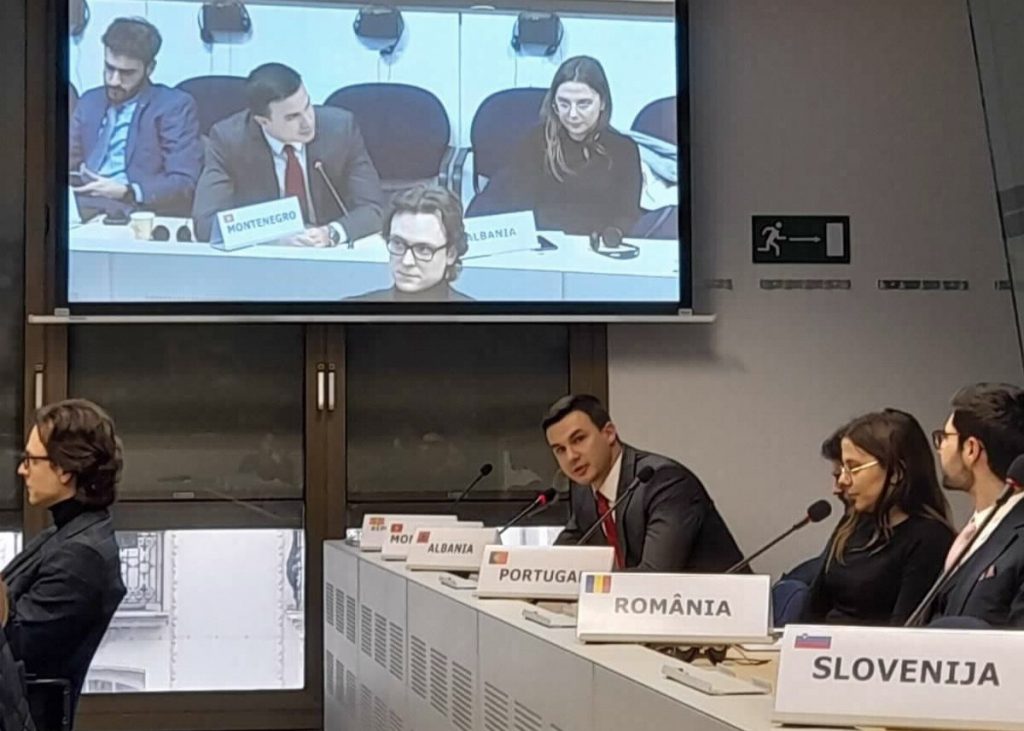
NGO GLAS: How can youth in Montenegro better understand and follow the negotiation process, especially through available sources of information from Brussels?
Andrej: In addition to means of public information, youth through the website of the Government and the Ministry of European Affairs can learn more about the latest activities that arise from the negotiation process of Montenegro. Also, there is the account of the Mission of Montenegro to the EU on the social network X, which especially follows current events related to youth, as well as the EU4ME website. Additionally, all relevant information about the negotiation process of our country, as well as of other candidate states for EU membership, is available also on the official websites of EU institutions.
NGO GLAS: How important is it that youth develop skills of European political and diplomatic communication?
Andrej: The constant improvement of communication skills among youth is of key importance, especially in diplomacy. Among the basic goals is effective representation of national interests and clear communication of the needs of Montenegro as a candidate both towards the member states, as well as towards the EU institutions whose positions and attitudes can at times be contradictory. On the other hand, it is necessary to present certain priorities, and sometimes also criticisms from the European partners, to the central office and find ways to operationalize them.
I would add that it is desirable to develop also soft skills which, among other things, imply active listening, critical thinking, and teamwork. Knowledge of several foreign languages is, certainly, a great advantage.
NGO GLAS: Can you state concrete examples of EU programs or initiatives that are particularly useful for employment and education of youth?
Andrej: Regarding concrete EU initiatives, I would remind that the European Commission twice a year organizes a program under the name Blue Book Traineeship which enables a five-month paid internship for graduates who come from EU member states, but also from candidate states. Thus, this program provides a great opportunity also for youth from Montenegro that, working in a multicultural and stimulating environment, they develop skills and acquire new knowledge and experiences in regard to understanding European policies and the functioning of the European Union. I would also emphasize the Erasmus+ program, as one of the largest EU programs in the field of education, which contributes to strengthening intercultural dialogue among youth.
NGO GLAS: In your opinion, how ready are youth in Montenegro to actively contribute to fulfilling the criteria from the negotiation chapters?
Andrej: It is known that Montenegro has entered the final phase of the negotiation process, and fulfilling the final criteria is under the competence of the relevant ministries. This and the next year, our country faces the closing of the remaining negotiation chapters, which is one of the final steps for EU membership, which, as I mentioned earlier, will undoubtedly bring numerous benefits to youth.
NGO GLAS: How do you think the experiences from your trinational master program in European studies can serve as a model of education for youth who want to engage in European affairs?
Andrej: It is a pleasure for me that, together with several other young and promising people from Montenegro, I am an alumnus of the trinational two-year Europa Master program. Studying in three countries (Poland, Germany, and France) enriched my knowledge, gave me valuable experience, and allowed me to get to know three different cultures. I would like to take this opportunity to invite and encourage students of political science to apply for a scholarship and deepen their knowledge about the European integration process, European policies, and EU institutions.
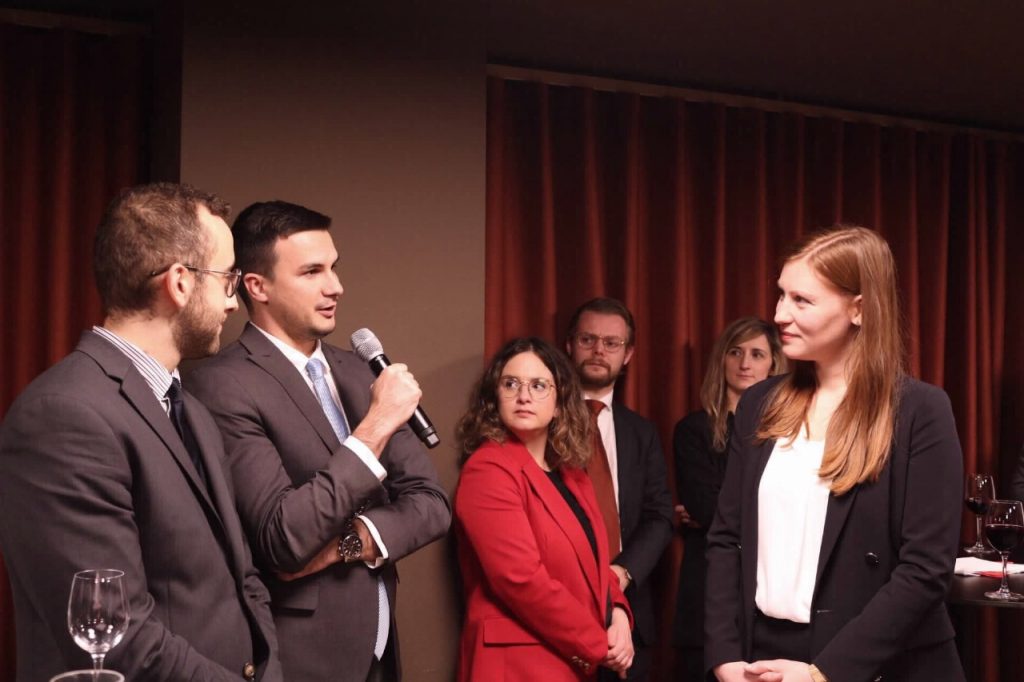
NGO GLAS: What are the biggest misconceptions of youth about the EU and the negotiations that should be broken through public campaigns and educational activities?
Andrej: Launching more frequent public campaigns in cooperation with the EU Delegation in Montenegro about tangible things that youth gain from our country’s EU membership would be more than desirable. Also, presenting a positive image of the EU in which youth organizations actively participate in socio-political processes can further motivate youth in our country and thus neutralize their occasional apathy.
NGO GLAS: What would be your advice to youth who want to start a career in EU institutions or diplomatic missions?
Andrej: In addition to formal education, non-formal education is indispensable, which includes attending numerous seminars and workshops and participating in forums organized by state institutions and the civil sector.
I would like to remind that the Ministry of Foreign Affairs twice a year, in March and October, organizes the exams for youth who want to start a diplomatic career and represent the interests of Montenegro in international relations. Once they pass the exam and become part of the Ministry, if they distinguish themselves with their work and wish to pursue a career in EU diplomacy, that path will be best opened by applying for participation in the EU Diplomatic Program for the enlargement region. This program runs parallel with the European Diplomatic Academy at the College of Europe in Bruges, which I attended, including two young female diplomats from Montenegro.
I would also emphasize that, after several years of pause, the Ministry of Foreign Affairs and the Mission of Montenegro to the EU have restarted the possibility of internships at the Mission for our youth who are completing their studies in the Benelux region.
NGO GLAS: How can the diaspora of young professionals from Montenegro be included in the EU process and the development of the community at home?
Andrej: I believe that sharing experiences by young professionals from the diaspora is of great importance for the community. In this sense, I believe that organizing seminars and forums that would gather representatives of state institutions, civil society, including young professionals from abroad, would encourage the exchange of ideas and views on the European integration of Montenegro, as our main foreign policy priority.
The conversation with Andrej Popović shows that young people in Montenegro have the potential and opportunity to be bearers of European values and to actively participate in the negotiation process. His diplomatic perspective reminds us that European integration is not only a political goal of the state but also an opportunity for education, employment, and social progress for youth. Precisely for this reason, empowering young people, informing them, and including them in public processes remains key to the success of Montenegro’s European path.
The regional project “Youth Engagement for Europeanization of the Balkans” is implemented in partnership with the organization BIRC from North Macedonia (project lead), CFID from Kosovo, and NGO GLAS from Montenegro, with support from the Western Balkans Fund and co-financing by the European Union.
